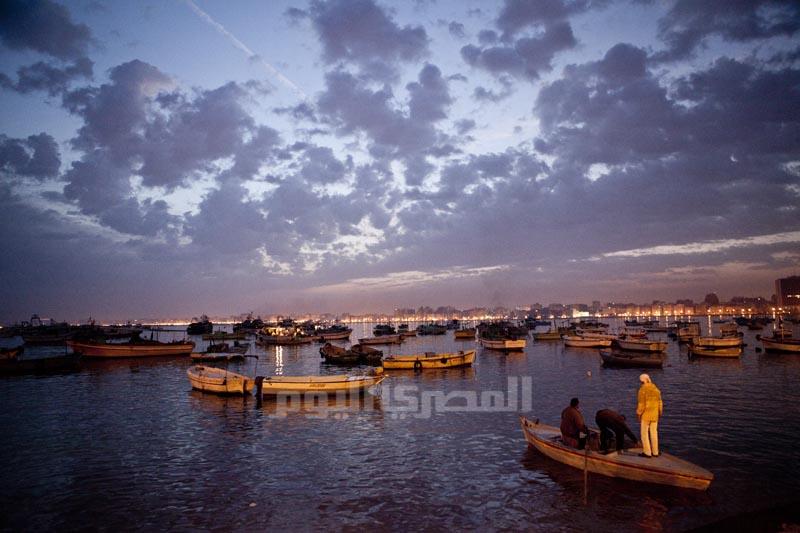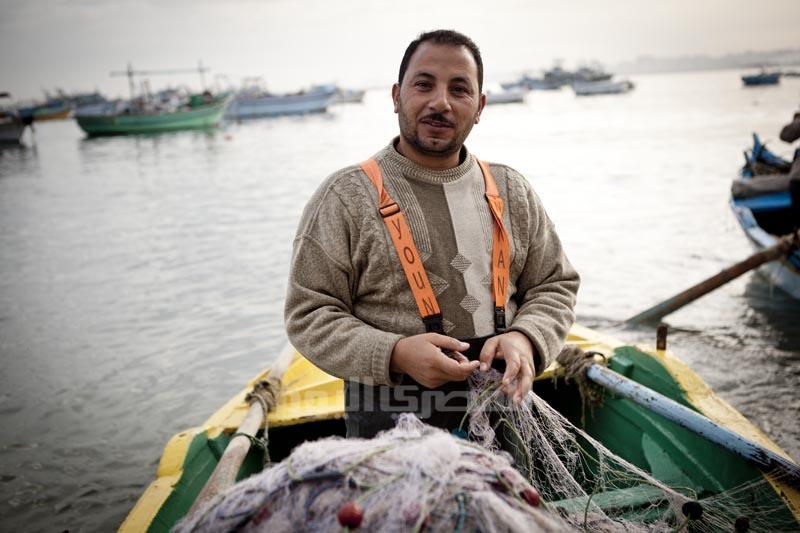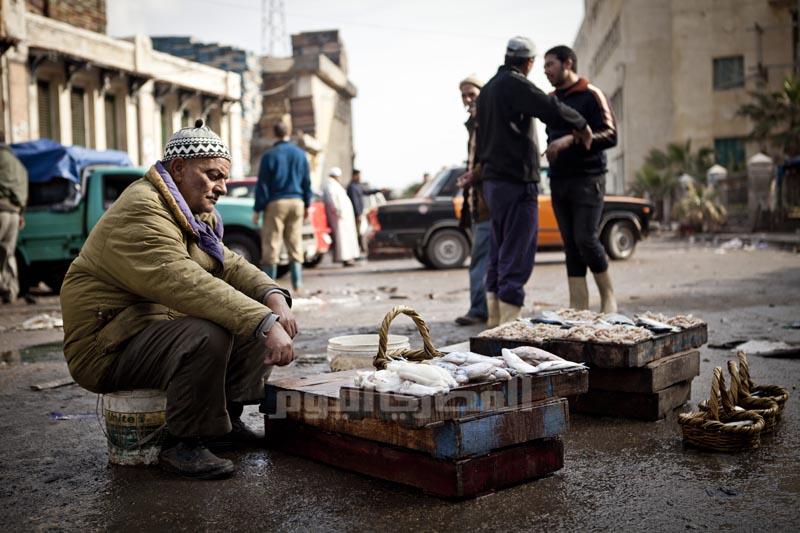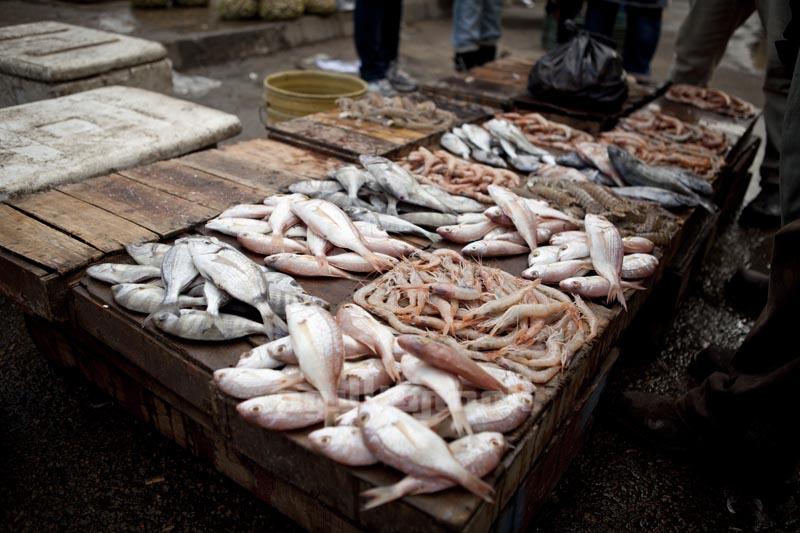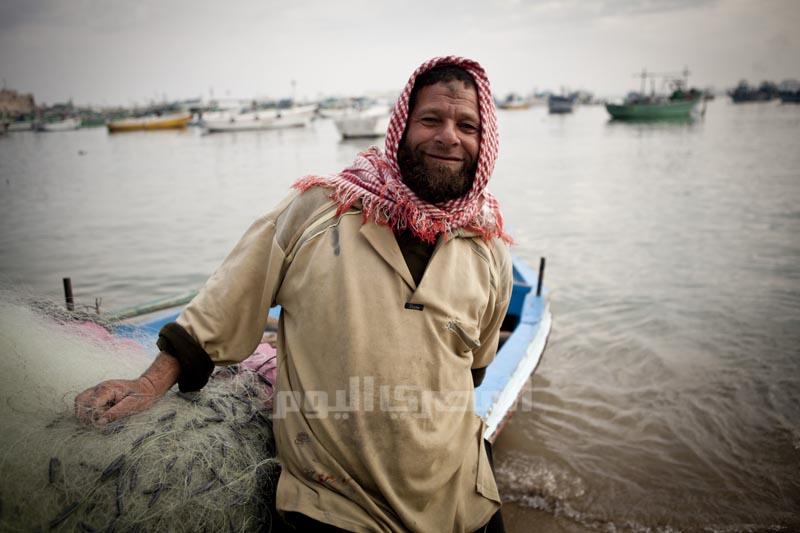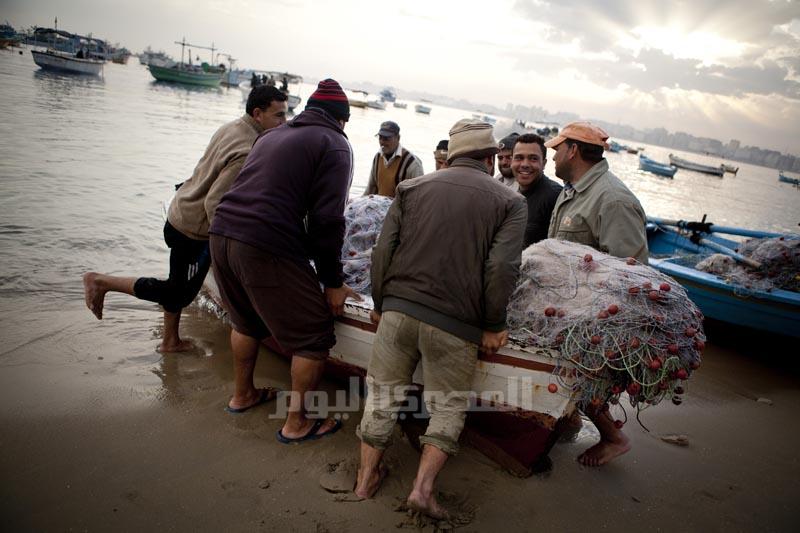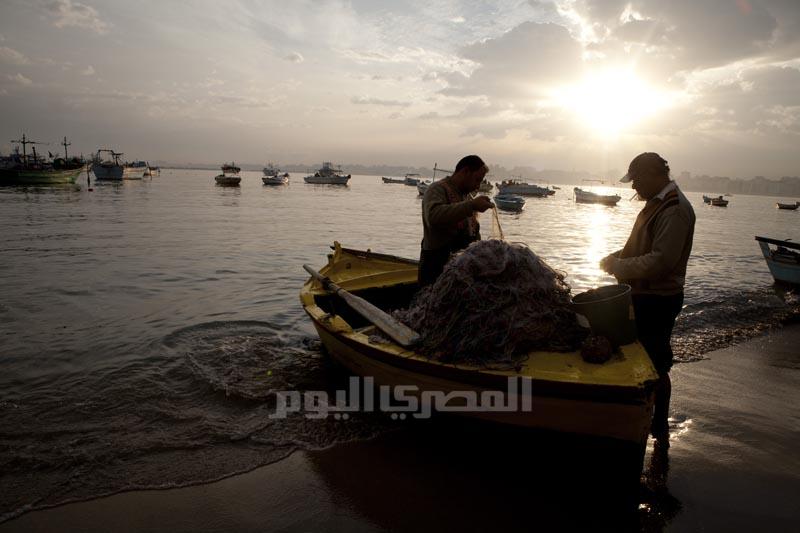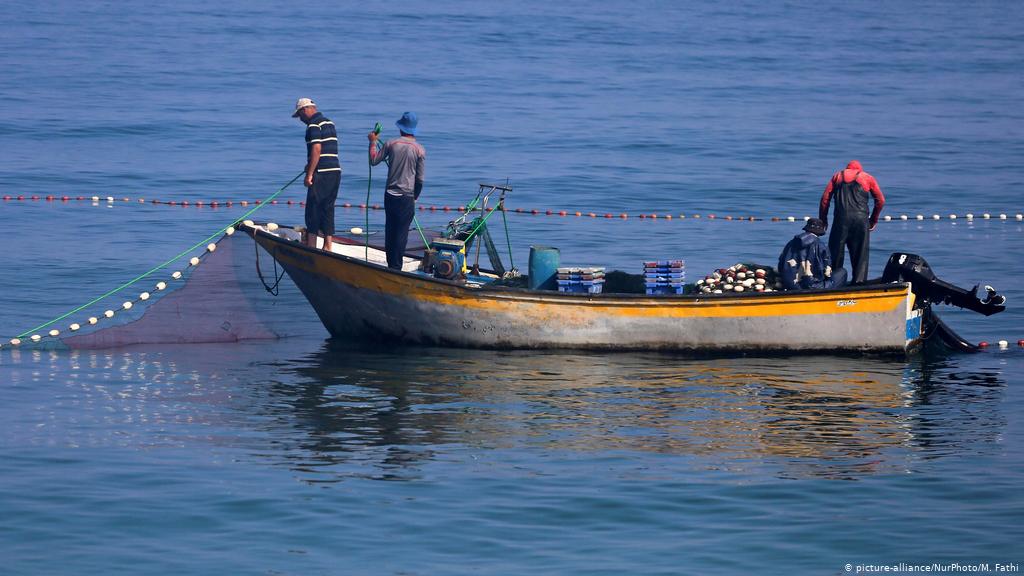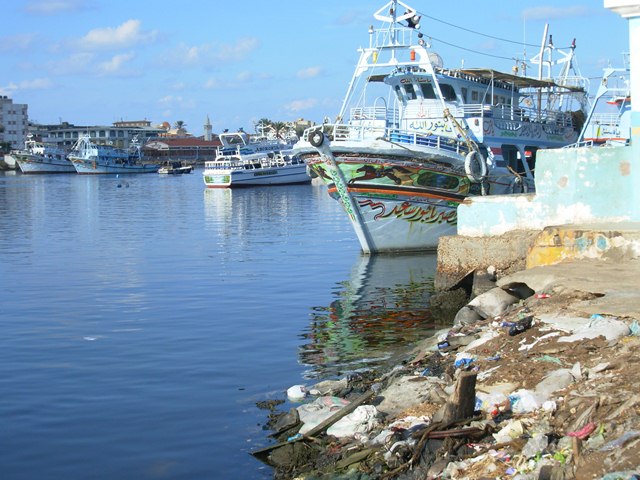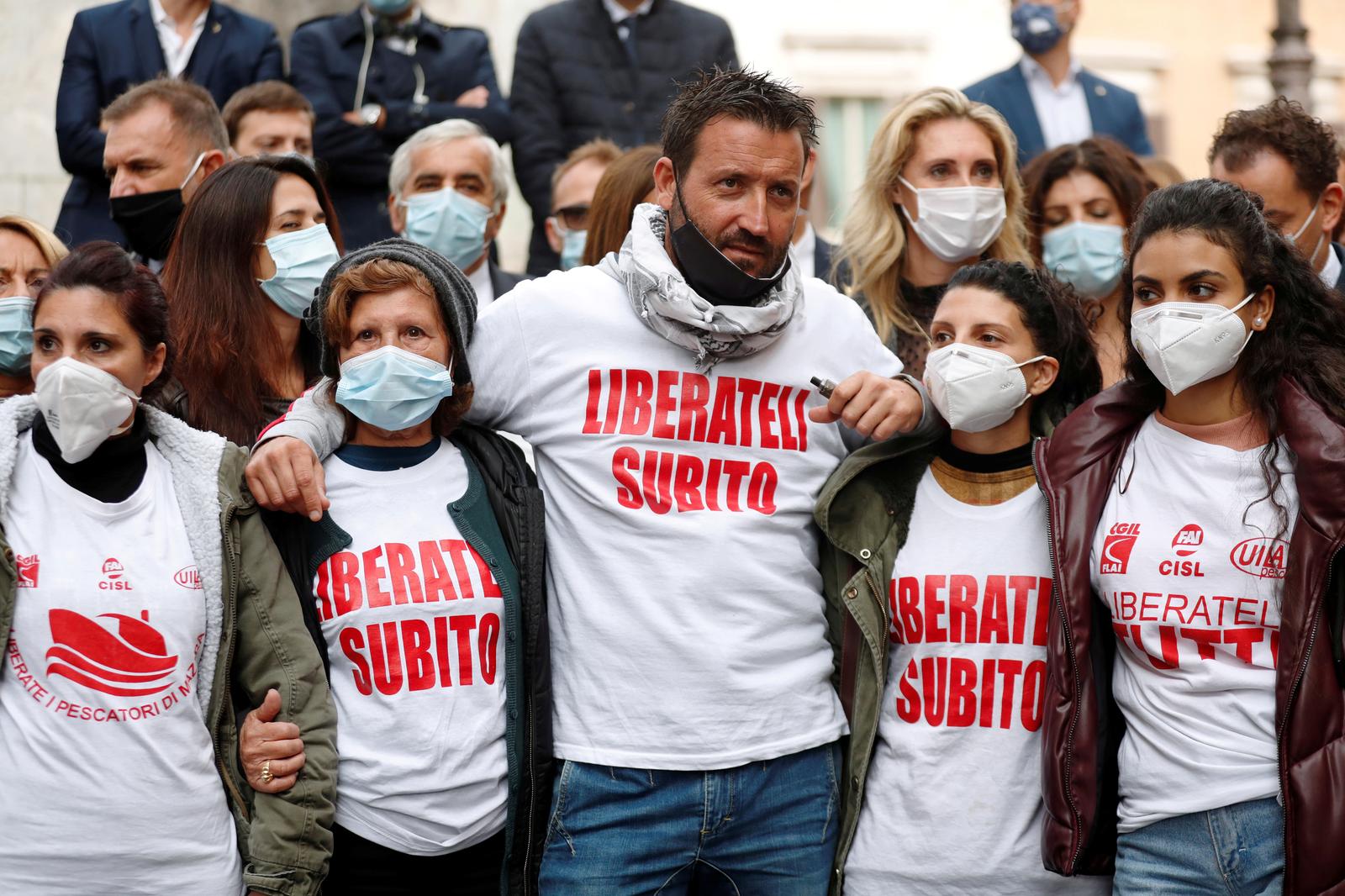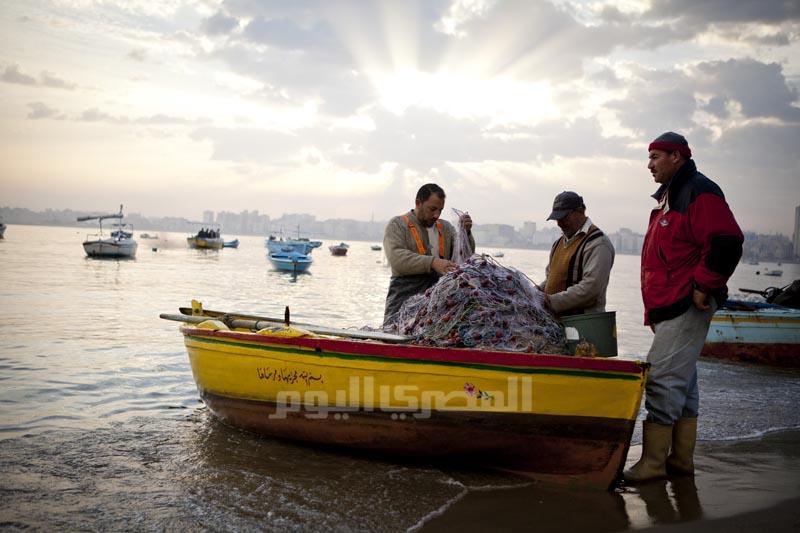
In the purple sunset light of the the Bahari port of Alexandria, fishermen start to walk around the big boats and feluccas moored next to the fish market. Nets and other fishing gear are scattered everywhere while other smaller crafts start to arrive on the beach. If the place seems peaceful, it’s not the case for the fishermen who are struggling to make a living.
On this fresh late winter morning, we can tell from the faces of the men who have been fishing for years that the catch wasn’t satisfying. “There are some good and bad days … we depend on the sea and when we throw our nets the numbers of fish that we will catch is in God’s hands,” says Ahmed Ibrahim, a 49-year-old fisherman who has been fishing for 10 years in Alexandria.
“Before, I was working on a liner as a captain traveling around Qatar and Dubai, but in 2008 the economic situation became too hard and I decided to live and work in Alexandria with my family.”
The fish catch has decreased in the last few years due to the increasing pollution caused by industrial and domestic waste dumped into the sea. Added to this, the boatmen have to compete with bigger boats, which increase the number of fishermen without licenses or who just fish as a hobby.
“We have the pollution that killed our fish, but next to this, as fishermen with small boats, we have to deal with bigger boats that take everything on their way. Nowadays, there is also a lack of control; everybody can go off the shores and fish. We miss control here and the government is not doing anything for our situation, especially after the revolution,” adds Abdel Salam, a boatman for 15 years.
Fishermen have been among the hardest hit by the 18-day uprising in early 2011, which has impaired Egypt’s tourist industry. Indeed, they used to live off tourists, as hotels bought their catches, and some of their incomes were reliant on fish market and restaurant purchases.
“Life has become more expensive and people don’t have money to buy fish, especially after the revolution. It becomes too hard to buy it now. Last year was easier,” says fish seller Suad, who declined to offer his last name.
Over the last year, the price of fruit and vegetables has doubled, while beef, chicken and fish have become a privilege of the rich.
The prices of fishing nets have also increased, raising the cost of a kilo of fish to between LE15 and LE100. Without any intervention from the new government, reduced tourism and inflation in the food market is putting fishermen’s economic livelihoods at risk.
Ahmed, who declined to give his last name, is from Qusayr, he came to Alexandria five years ago in order to fish. Every day at around 2 pm, he throws his nets in the sea, then comes back at 4 am to fetch the fish.
“I have five children and I didn’t want them to be fishermen,” he says. “Unfortunately I didn’t have enough money to pay for their studies, so the boys became fishermen.”
Abdel Salam would also prefer his children not become fishermen.
“We are tough and courageous, but for my children, it has become too hard. I would prefer that they become engineers. I want them to have beautiful lives.”
Ahmed Ibrahim, on the other hand, has been able to pay for his children’s studies.
“Most of them are still in secondary and primary school, while one of them is studying commerce. Anyway, they prefer to dive rather than fish.”
Like the decreasing fish population, the world of boatmen might soon die out. Ibrahim, though, sees an alternative route to make more money.
“Some fishermen find relics in the sea and sell them to individuals or to the Egyptian Museum,” he says. “If I find one someday, I don’t think I will be here fishing to make a living.”

